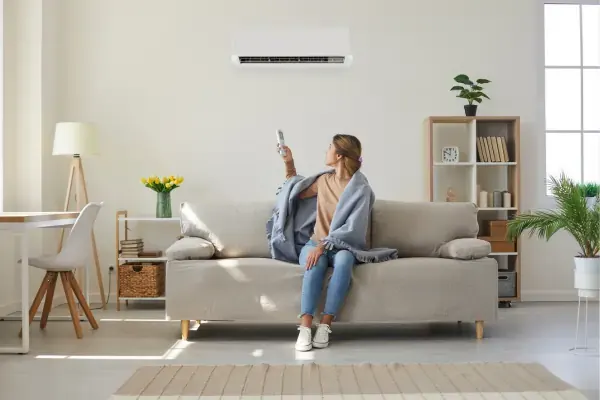Air Conditioner Power Usage
Living and working in a climate such as we do in Australia, trying to cope with prolonged scorching humid days, along with uncomfortable nights, and relying on your air conditioner for relief becomes nothing short of a lifesaving solution. Air conditioning is essential for maintaining comfortable, healthy, and productive indoor spaces.
However, what is the financial toll of running your AC continuously around the clock on your monthly energy bills? If you're installing a new air conditioning system or upgrading your current one, it's crucial to evaluate its power consumption before installation. Understanding the power usage or energy efficiency of your air conditioner allows you to gauge its energy efficiency. With the vast range of air conditioning systems available, from split systems to ducted AC or ceiling cassette units, looking for a more energy-efficient model will consume less power for the same cooling (or heating) output, leading to lower energy bills and reduced environmental impact.

Energy Efficiency Information Guide
To find out the energy efficiency of an air conditioner, you typically look for its Energy Efficiency Ratio (EER) or Seasonal Energy Efficiency Ratio (SEER) rating. By considering these factors, you can determine the energy efficiency of an air conditioner and make an informed decision about which one best fits your needs. Here's how you can determine the energy efficiency:
Check the Manufacturer's Label:
Look for the EER or SEER rating on the manufacturer's label of the air conditioner. This label is usually located on the appliance itself or in the product documentation. The higher the rating, the more energy-efficient the air conditioner is.
Calculate Energy Efficiency Ratio (EER):
If you have the necessary information, you can calculate the EER yourself. The EER is calculated by dividing the cooling capacity (in British thermal units or BTUs) by the power input (in watts) at a specific outdoor temperature, typically 95°F (35°C). The formula is:
EER=Cooling Capacity (BTUs) over Power Input (watts)
- Higher EER values indicate better energy efficiency.
Check Seasonal Energy Efficiency Ratio (SEER) Rating:
SEER is another common measure of energy efficiency. It represents the cooling output (in BTUs) during a typical cooling season divided by the total electric energy input (in watt-hours) during the same period. The formula is:
SEER=Total Cooling Output (BTUs) over Total Energy Input (watt-hours)
- *SEER ratings are usually higher than EER ratings because they take into account the entire cooling season and not just specific conditions.
Look for Energy Star Certification:
If the air conditioner has an Energy Star certification, it means it meets specific energy efficiency criteria set by the Environmental Protection Agency (EPA). Energy Star-certified products are typically more energy-efficient than standard models.
Consult Product Documentation or Manufacturer's Website:
If you can't find the rating on the appliance itself, check the product documentation or the manufacturer's website. They often provide detailed information about the energy efficiency of their products.
Energy Saving Settings
Another method to guarantee the efficient use of your air conditioner is to ensure the temperature settings are set accurately. This will ensure it works efficiently and uses the right amount of power. While specific instructions can be found in your manufacturer's manual, a general guide for temperature settings is as follows:
For cooling - Optimal temperature control - 24°C - 26°C for comfort and for minimal energy consumption
For heating - Optimal temperature control - 18°C - 20°C for comfort and for minimal energy consumption

Whether you're investing in an air conditioning system in your new residence or business, or upgrading your current unit to a more energy-efficient model, seeking advice from an air conditioning professional can greatly assist you in making a well-informed decision.
Reference - https://www.canstarblue.com.au/electricity/air-con-temperature-costing/
Get in Touch!
We can help with anything Air Conditioning
Book Now for a Free, No Obligation Quote!
(02) 4421 8996